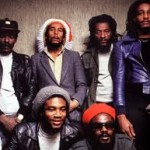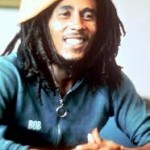BY LINDA LABAN

|
Stephen “Ragga” Marley
Photo by Wonder Knack
|
This summer, the first Catch a Fire tour unites generations of reggae’s first family as Stephen “Ragga” Marley and his brother Damian “Jr. Gong” Marley headline a bill that includes their nephew, Skip, and Stephen’s son Jo Mersa. It’s a special summer gathering, which includes a host of reggae artists, and is part of a yearlong celebration of what would have been the late Bob Marley’s 70th birthday.
This tour, which lands at Central Park’s SummerStage on August 30, is named for the Wailers’ 1973 album, which was the record that put the band on the map. Inarguably, Bob Marley and the Wailers now stand as the Caribbean’s equivalent of the Beatles, and as popular as this music has become worldwide, it is also played a large part in the socially conscious roots reggae movement. It’s the family business, indisputably.
“Reggae is the foundation of this family. Growing up it was all around us from our parents—my mother too,” says Stephen, referring to Rita Marley, who as part of the I Threes vocal trio formed an almost mystical backing choir that accompanied the Wailers. “It was like being in a candy store with all these instruments around us twelve kids. We’d fool around with instruments and be around rehearsals. So it wasn’t consciously a thing; music was just all around us.”
“He would teach us and sing with us,” says Marley, who at seven years old was performing with his elder siblings Ziggy, Sharon, and Cedella as the Melody Makers. “He’d have us sing scales front and backwards: do re mi fa so la ti do, do ti la so fa mi re do,” he sings, giggling at the memory. “You could not just do it just because your father does it. You had to be serious about music for yourself.”

Since those early days in the Melody Makers, Stephen has explored reggae through his own records, and never more so than on his latest albums: Revelation Part I: The Root of Life, which was released in 2011, and the upcoming hip-hopheavy Revelation Part II: The Fruit of Life. Whereas The Root of Life looked to the music that influenced reggae — from dancehall to jazz to salsa — The Fruit of Life looks at the music’s influence includes a ton of A-List guests, including Rick Ross, Pit Bull, Iggy Azalea, Waka Flocka, Dead Prez, Rakim, DJ Khaled, Busta Rhymes, Wyclef Jean, Shaggy, the Roots’ Black Thought, and also half-brother Ky-Mani Marley and Jo Mersa. Each artist was chosen to embellish the song and expand on the reggae notion. “Mostly the song dictates a vibe,” says Marley, “and then you think, oh yeah, I’m hearing Rick Ross. So I reached out and he came on board. That’s how it went from song to song. The song inspires you to incorporate other genres.”
Bob Marley’s aspiration created a huge legacy not only for his family, but also the people of Jamaica, especially those living in poverty in shantytowns, the kind of place Bob Marley grew up in and wrote so eloquently about. “My father brought pride to the people of Jamaica who saw where he was from and what he did. He was from the country on the island; he moved to the ghetto; then he moved out into the world. He wrote about the suffering of the people. He wrote about his life.”
Of course, there is sadness to this year, or any year since losing their father in 1981. Marley pauses to think about this other picture outside of music making and being in the world, the one of a child and father. “Mmmm,” he eventually murmurs, as if coming to an agreement within himself. “We were very close to him. It affected us, you know? But he’s still with us. The main thing is he leaves many lessons for us to learn. And that goes to many areas of life, not just music. We go to him everyday, you know?”
Stephen “Ragga” Marley and Damian “Jr. Gong” Marley play SummerStage on August 30.




You must log in to post a comment.